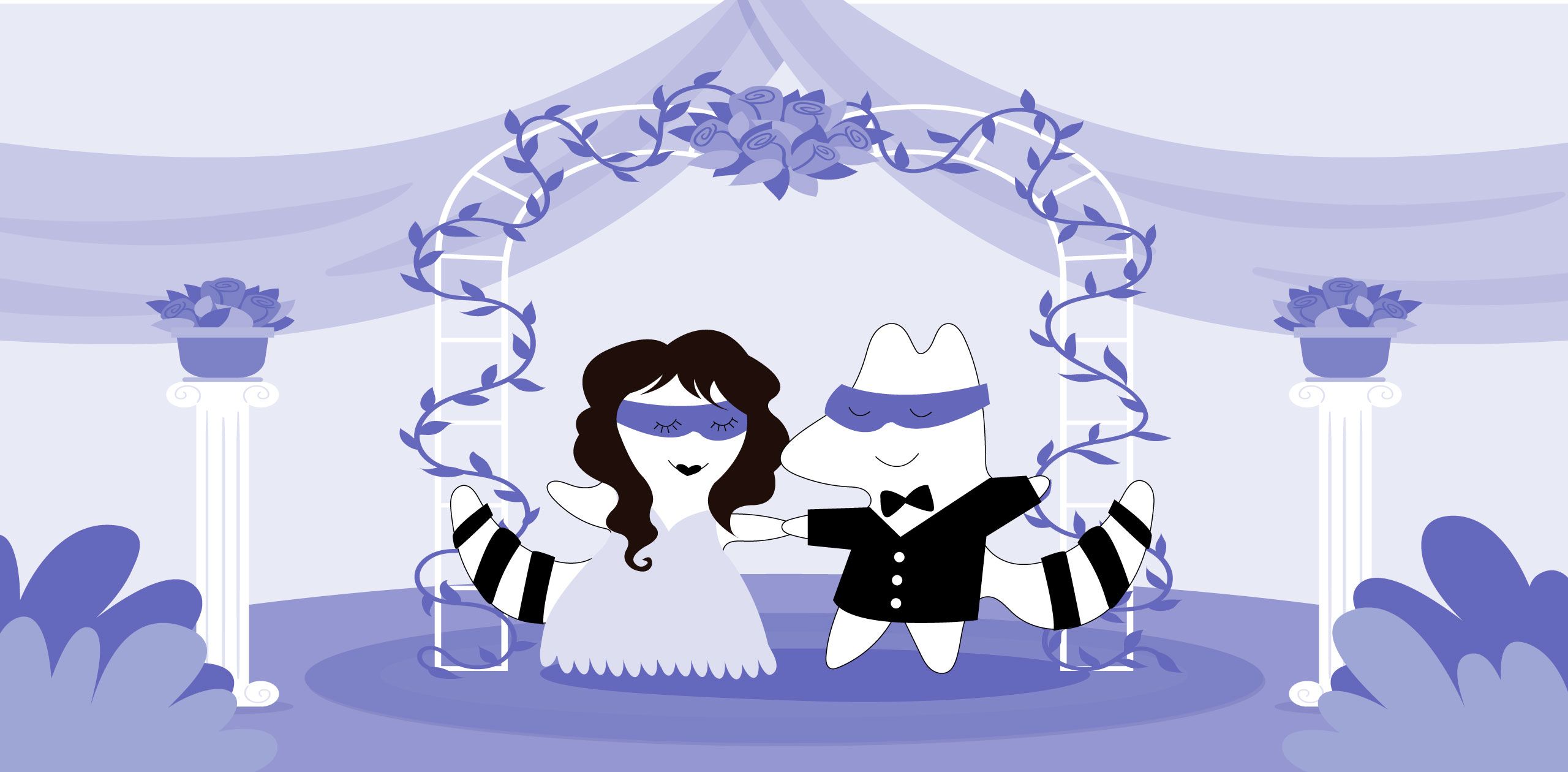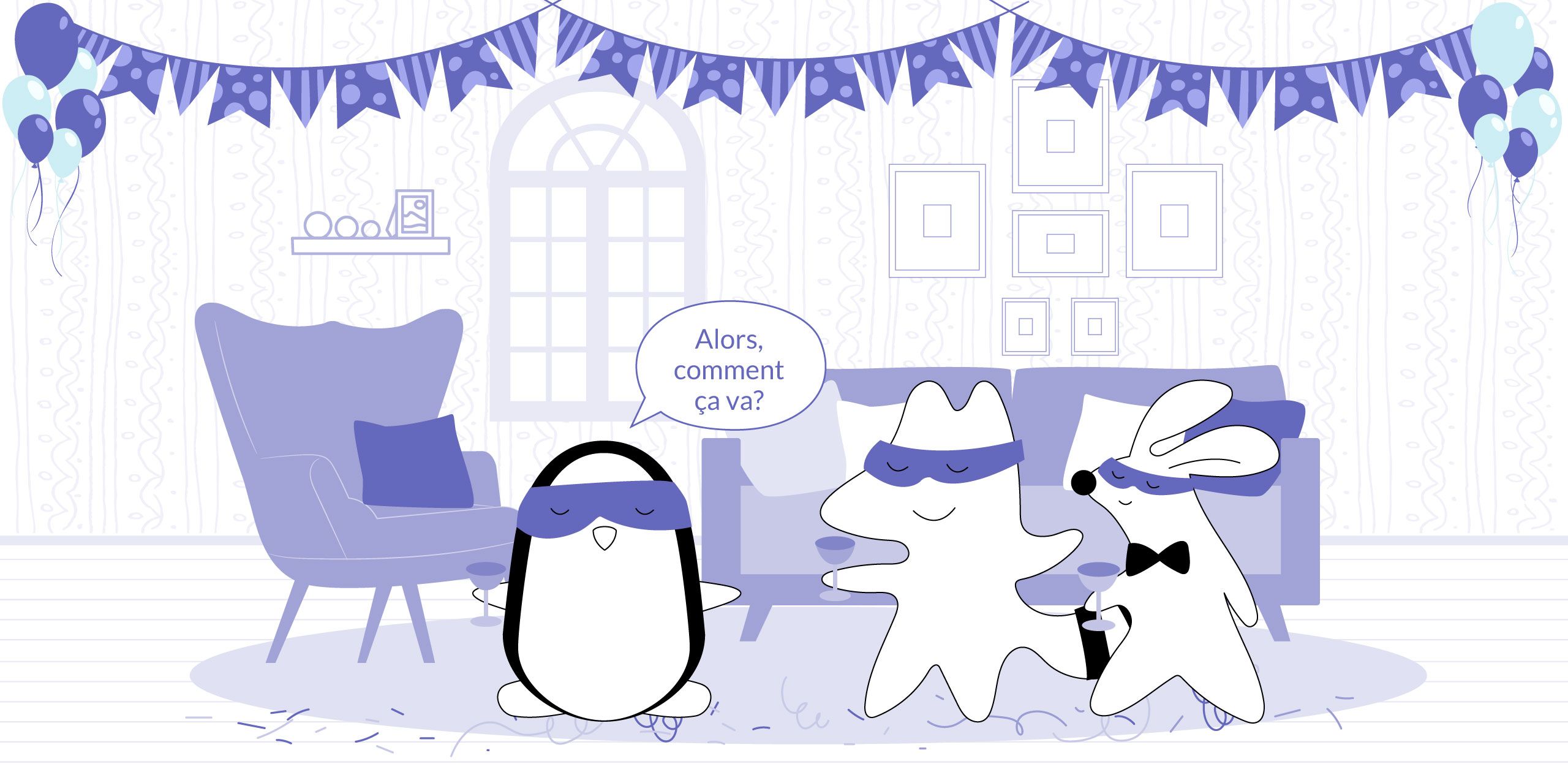
Filler words are common in any language. They allow speakers to buy time or emphasize a point, but in French, there are a few specific words and phrases that tend to be used more than others.
Of course, overusing these words can make you sound unsure of yourself and even weak. It's better to be familiar with them so that you can understand native speakers better, but try not to use them too much in your own vocabulary.
In this article, we'll discuss some of the most common French filler words and phrases. We'll explain what they mean and how they're used so that you can start using them yourself without sounding too awkward. Read on, discover some of the most common French filler words, and become a French conversation master.
Learn French with Langster
Alors
Alors is probably the most common filler word in the entire French language. It can be used to add emphasis or to buy time while you're thinking of what to say next. It basically means "so" or "then", and it's usually used to connect two thoughts or sentences.
Alors is often used as a way to transition into a new topic or to sum up what you've just said. It can also be used to show agreement or disagreement or to ask for someone's opinion.
French
English
Alors, comment ça va ?
So, how’s it going?
In a bit more rude or sarcastic tone, alors can mean the equivalent of the English phrase “so what?” to ask clarification about a previous statement:
French
English
- J'ai acheté une nouvelle robe.
- Alors ?
- I’ve bought a new dress.
- So what?
Alors is a very versatile word, and you'll probably hear it a lot in French conversations. The best thing about it is that it’s not considered an informal word in the meaning of “so” – you can use it wherever you want and not sound awkward!
Du coup
Du coup is another common French filler word. It basically means "so" or "then", and it's used to connect two thoughts or sentences. Du coup is often used as a way to transition to a new topic or to sum up what you've just said. It can also be used to show agreement or disagreement or to ask for someone's opinion.
Du coup is slightly less versatile than alors, but it's still an important word to know. You'll hear it a lot in spoken French, so make sure you're familiar with its meaning and usage.
For example, if someone asks you how your vacation was, you might say:
French
English
Je viens d'arriver dans ce village depuis Paris. Du coup, j'ai du mal à m'adapter à ce nouveau mode de vie.
I just came to this village from Paris. As a result, I'm having problems adjusting to the new lifestyle.
Euh
Euh is another common French filler word. It's basically a hesitation word that you can use when you're not sure what to say next. It is a French equivalent of the English “um…”, and it's used to buy time while you're thinking of what to say.
Euh is generally considered to be an informal word, so you should use it sparingly in formal situations. However, it's very common in spoken French, so you'll likely hear it often.
French
English
Euh... Je ne suis pas sûr de ça.
Um... I'm not sure about that.
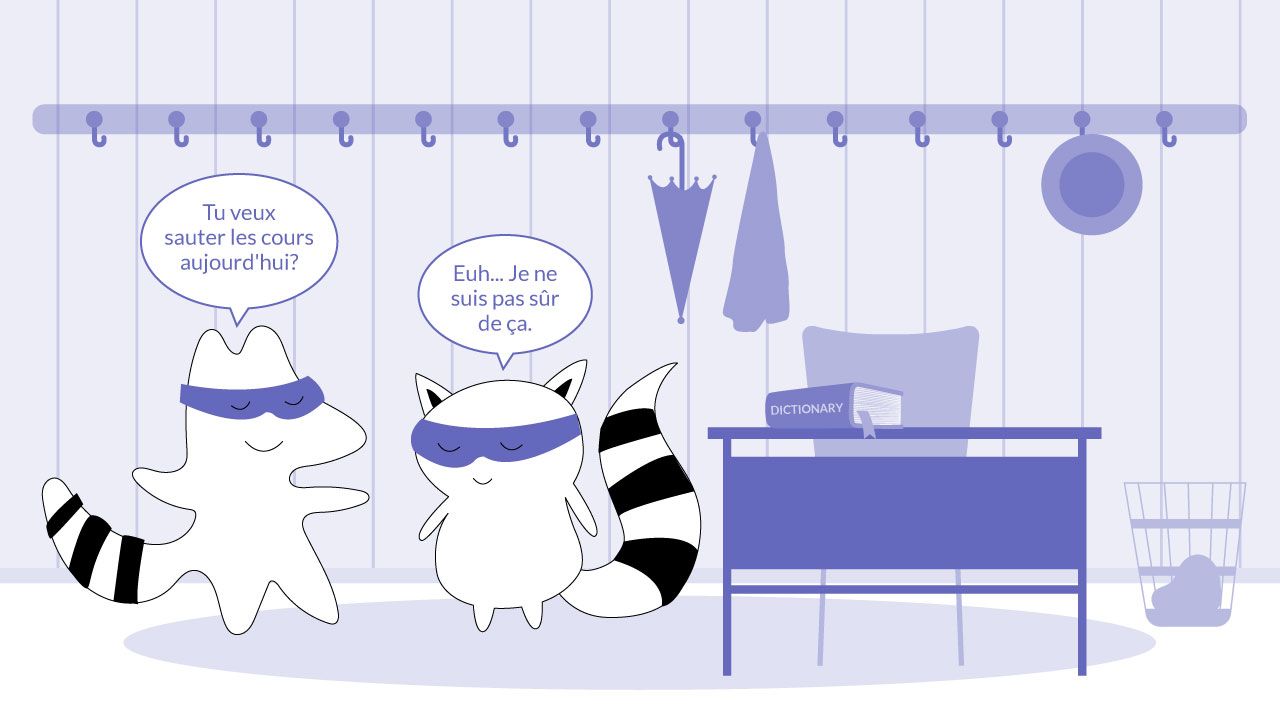
Voilà
Voilà is a French word that means "there you have it" or "that's it". French people use it to introduce a new topic, emphasize a point, or show agreement. Voilà can also add emphasis, make a statement, or introduce a new point.
For example, if you’re annoyed that your friend who can’t sing goes to the karaoke stage again, you can say:
French
English
Voilà, il le fait encore.
There you have it, he's doing it again.
C’est clair
C’est clair is a French phrase that means "that's clear" or "I see". You can say it to show agreement, understanding, or clarity.
So if your friend is telling you a story, a fact, or explaining an argument, you can say:
French
English
OK, c'est clair.
OK, I see.
Quoi
Quoi is another common filler word, and it means "what" or "which". This interrogative pronoun can be very versatile, so be aware: you can use it to ask a question, express surprise, or even emphasize something. French people also often use it to ask for clarification or more information – and if it seems like they do it too often, it is so.
You can use it, for instance, if you don't understand what somebody is saying:
French
English
Quoi ? Je ne comprends pas.
What? I don’t understand.
Or use it just like a regular filler word. In that case, it would mean something like “come on”:
French
English
Parle-moi, quoi !
Come on, talk to me!
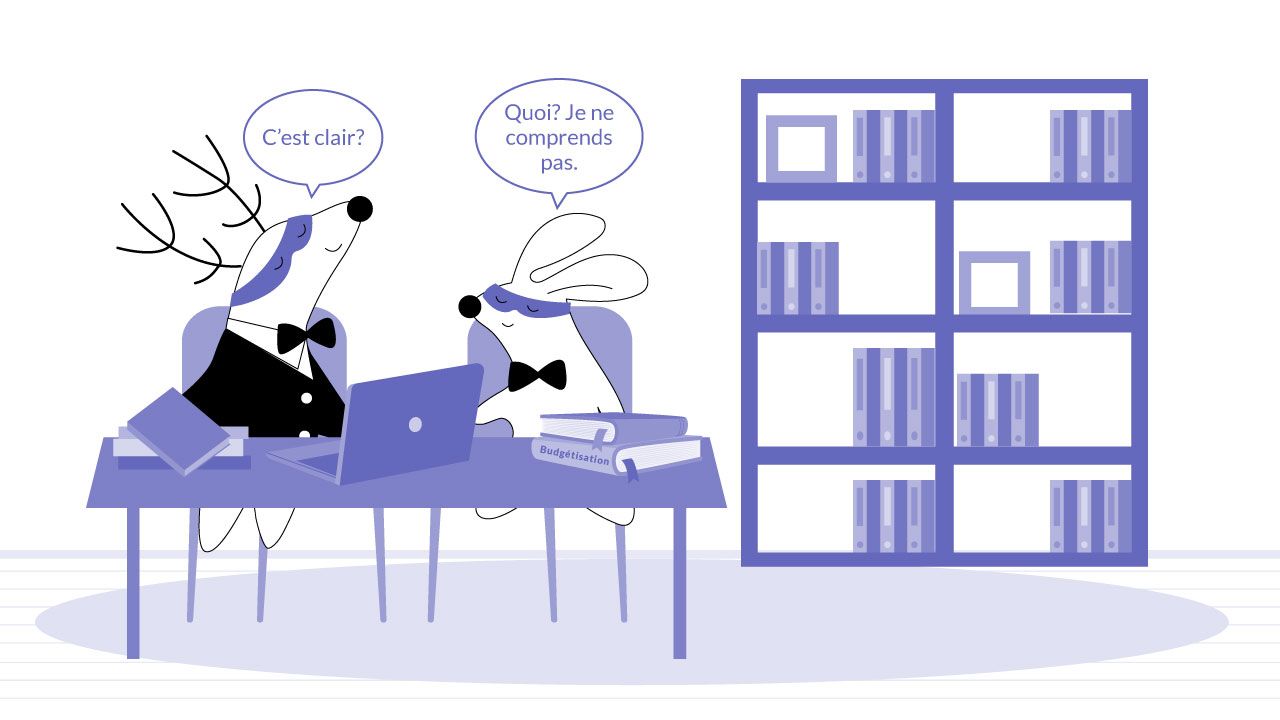
En fait
En fait is a French phrase that means "in fact" or "actually". French people use this phrase to introduce a new topic, express agreement, or show understanding. Just like its English alternative, en fait is a very common filler word in the French language.
For example, if you want to emphasize that you really like the new car your friend bought, you can say:
French
English
En fait, j'adore ta nouvelle voiture.
Actually, I love your new car.
Or if you want to introduce a new topic, you can say:
French
English
En fait, je voulais te parler de quelque chose.
Actually, I wanted to talk to you about something.
Bref
Bref is another annoying filler word you might encounter quite often when speaking French. It means "in short" or "anyway" and is often used to introduce a new topic, to sum up what you've just said, or to show agreement.
For example, if you want to sum up what you've just said, you can say:
French
English
Bref, c'est ce que je pense.
In short, that's what I think.
There’s even a French tv-show called Bref created by Kyan Khojandi – in each episode, a character tells a short story about a certain problem, and then sums it up in the end by saying “bref.”
Ben oui, ben non
Ben oui and ben non are two French phrases that mean "well, yes” and “well, no", respectively. Native speakers often use them to express agreement or disagreement, to show understanding, or to emphasize a point. Remember though, these phrases are very informal – so don’t use them when talking to your boss or teacher.
In casual situations, if you want to agree with someone, you can say:
French
English
Ben oui, c'est ce que je pense aussi.
Well, yes, that's what I think too.
And if you want to disagree with them, you can say:
French
English
Ben non, ça ne fonctionne pas exactement comme tu l'as dit.
Well, no, that doesn't work exactly like you said.
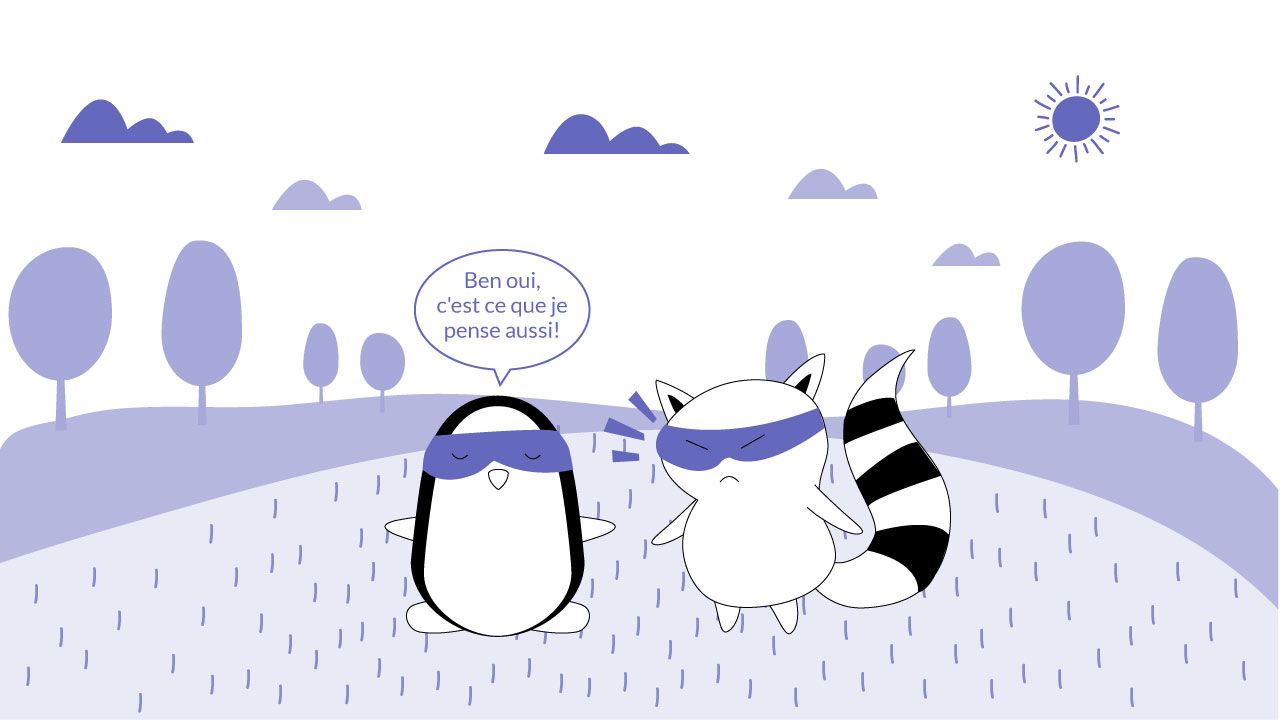
Tu vois
Tu vois is a French phrase that means "you see" or "you know". You would normally use it to emphasize a point you just made or simply to end the sentence. There’s also another version of it: “T’as vu.”
In English, you would typically say instead “you see what I mean.”
French
English
C'est important, tu vois.
It's important, you know.
Genre
Genre is a French word that means "type" or "kind". In colloquial speech, it's often used to emphasize a point you're making or to show agreement. For many French learners, it can be confusing. The right word in English for it would be “like” – as in:
French
English
Je l'ai vue, genre, à un kilomètre.
I saw her, like, from a mile away.
Enfin
And finally, the word that means "finally." While we can translate it, enfin usually means nothing at the end of the sentence. In that case, it has no translation – it’s more of a sigh in an expression of regret or melancholy.
French
English
Il a fait ses valises... Enfin...
He packed his things…
However, when used at the beginning or in the middle of the sentence, enfin can be translated as “well…” Same as with “euh”, this is a filler word you use to gather your thoughts and find out how to say something correctly.
French
English
Enfin... Je lui ai dit la vérité.
Well... I told him the truth.
Be careful, though: enfin can and often does mean its original meaning, “finally” or “at last.” This can change the meaning of the whole sentence a lot – so make sure you know which English equivalent you are aiming for before saying it out loud.
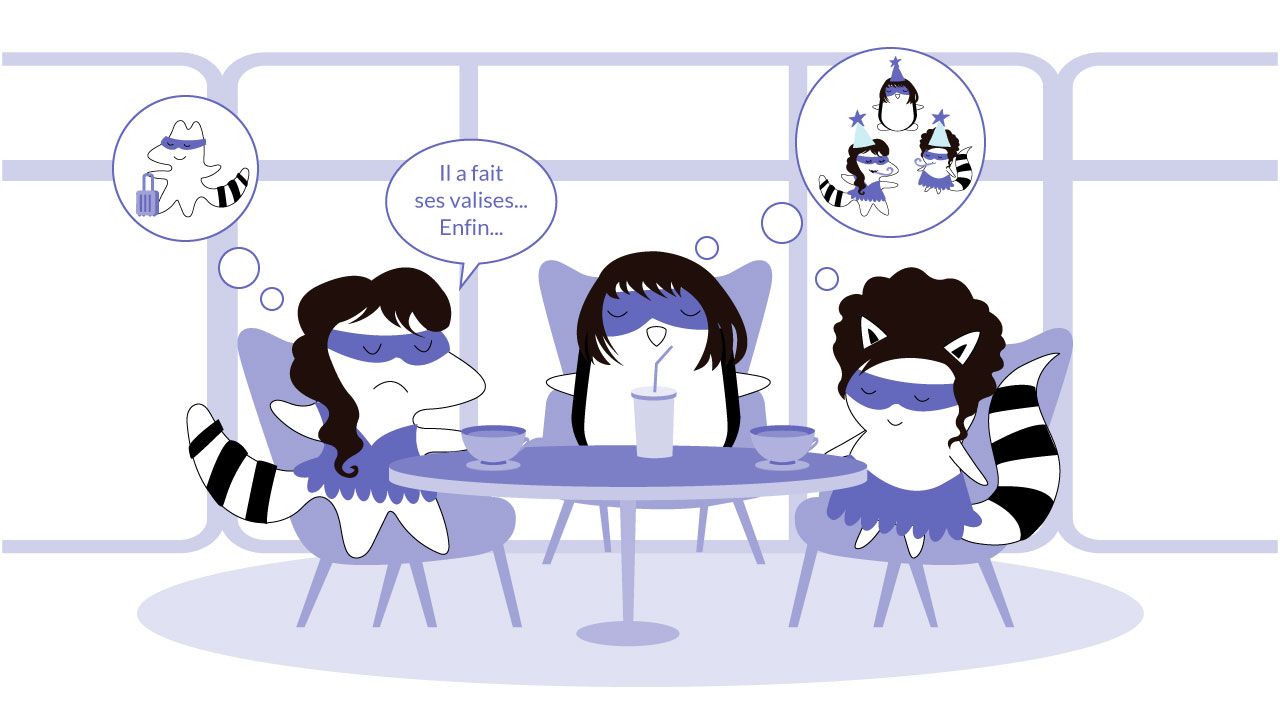
French Filler Words Are Easy… Tu Vois ?
Now that you are familiar with the most common French filler words, it’s time to practice them. After all, if you want to become fluent in French, you need to be able to use them correctly in the spoken language – and distinguish them from other words when communicating with native speakers or listening to French speech.
Fortunately, it’s not hard to master French filler words. Just remember to practice on a regular basis – include them in your learning schedule as part of speaking exercises. Talk about your dreams, holidays, and plans, imagine as if you were talking to a French person sitting in a cafe, and use these filler words when needed. Just make sure to avoid them in formal settings – and you’re good to go.







